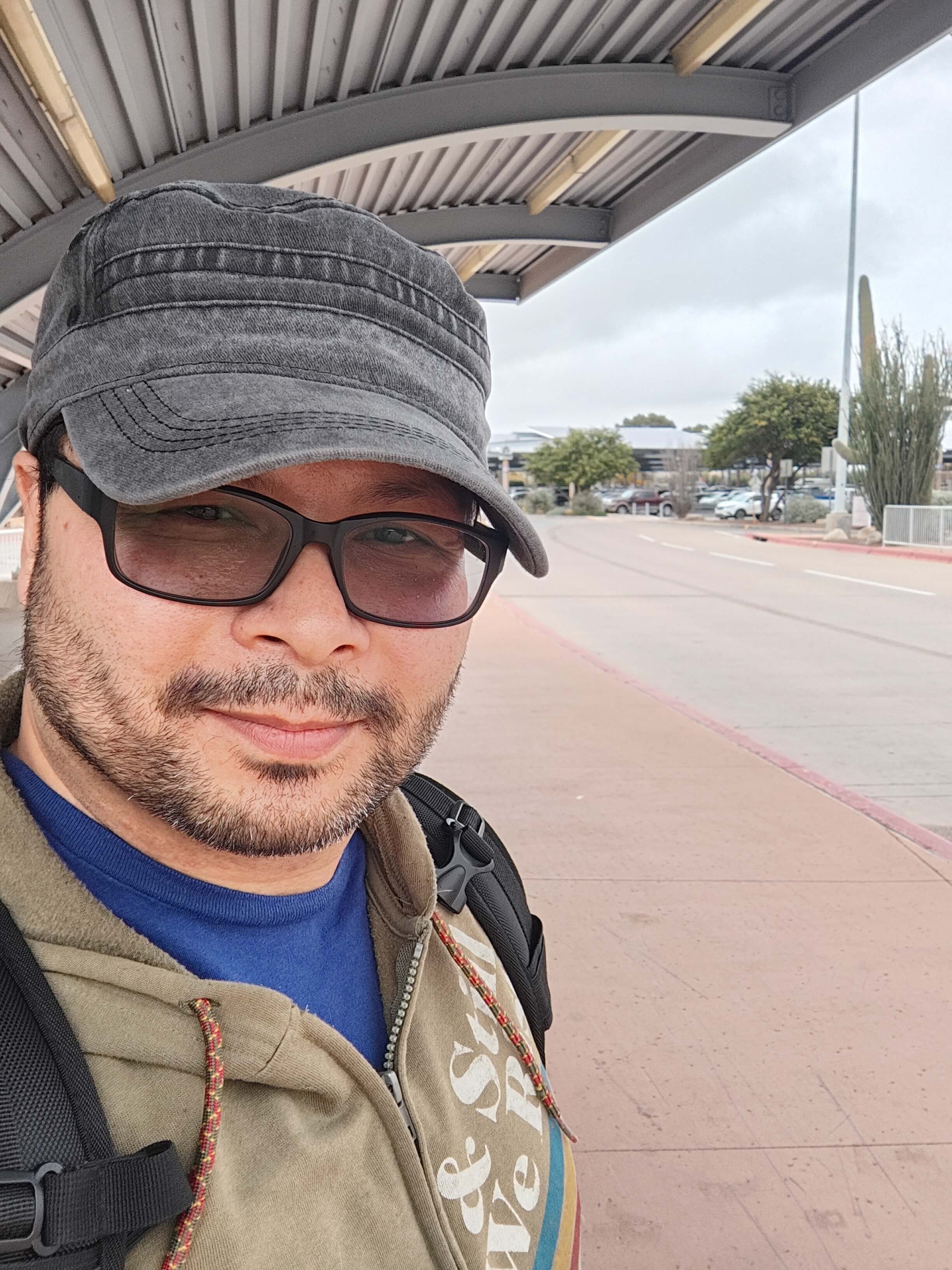"Someone who is unhoused in your community is your neighbor.” - National Coalition for the Homeless
Peer Support Spotlight: David Stanley
I currently work as a certified peer specialist with the Eau Claire County Department of Human Services. While primarily brought on to work with the crisis team, I also work with peers through Community Recovery Services (CRS) and Comprehensive Community Services (CCS). In this role, I meet with people in these programs who wish to build connection, personal skills, confidence and walk alongside them as they are involved in the services these programs provide.
Some of the things I do in this role:
- Meet with peers 1 on 1 for support and guidance as desired
- Advocate for peers, and encourage them to advocate for themselves, in team meetings and treatment/recovery plans
- Be a non-judging, non-pushing, non-clinical person for peers to connect with while involved in Human Services
- Co-respond with other crisis team members to mental health and substance use crisis in the community. This can be direct support for the person in crisis, support for friends/family/others present, and providing support for team members and other staff members.
- Community outreach and collaboration. I currently meet community members where they are at in some spaces such as the public library, a homeless shelter, a day shelter, and a senior/community center in another town in the county.
I also am involved in several boards, committees, and workgroups to intentionally bring lived experience (my own and others) and the peer support perspective to the table as well as bringing the information and other views at those tables to others.

Before working with Eau Claire County, I was the community coordinator for Wisconsin Milkweed Alliance Inc. in Menomonie, WI, as part of the leadership team supporting the director and other staff in running the non-profit peer run organization (a peer run respite and a peer recovery drop-in center). This is where I really got to experience peer support in practice and learned much from my peer colleagues. At times it was an administrative and supervisory role, others, I provided direct peer support over the phone, in person, or in groups. It was here that it was made clear that there is no cookie-cutter method or practice of peer support other than truly being alongside the peer you are supporting. It was here that I learned that peer support means not holding yourself higher than the person you are supporting and if it is needed that someone enforce something on that person, then peer support may not be the right fit for that person’s current situation.
David’s lived and professional experiences include:
- 2 service years with AmeriCorps as a community health liaison in the Eau Claire Health Dept
- Overseas wartime Army veteran and worked through traumas and hardships after separation
- Parent of adult children and a current teen
- Divorced with complicated proceedings
- A VERY diverse work history (security, factory, feed mill, offices, wait staff, construction)
- Involved with the LGBTQIA2+ community
- Have lived low-income and utilized aid services (foodshare, housing, pantries, etc)
- Has experienced homelessness
- Has had periods in life where only income was donating plasma
- Has used and worked through substance use struggles
- Early childhood trauma, very complicated family issues, mis- or inaccurate diagnosis as a child
- and more that I have now addressed in ongoing therapy and freely share with the peers I support as is relevant
What I try to share with my peers is that I do not meet with them because of their diagnosis. I meet with them because they have expressed the desire to talk with someone they can be themselves with, who isn’t assessing them, and who they feel they can connect with and relate to.
My hope is that peer support can truly grow as an essential service alongside other community supports and that certified peer specialists can get trained and find employment into positions where their lived experiences and focus is valued.
For more information on Peer Support Specialists in Wisconsin, please go here.
Lutheran Social Services Spotlight
Located on the corner of Barstow and Grand in downtown Eau Claire is Lutheran Social Services Gaining Ground, a community transition center assisting people experiencing mental health concerns and/or homelessness in Eau Claire County. Serving 223 people in 2024, Gaining Ground takes a personalized approach to helping individuals address the wide variety of needs they have when navigating through their Crisis Stabilization Services. Many individuals were experiencing homelessness, and Gaining Ground staff connected 24 of them with housing. Trauma-informed trained staff, including Peer Support Specialists, meet with individuals and assist in finding employment or affordable housing, help apply for eligible services such as FoodShare and Medicaid, and even accompany them to appointments to ensure they receive the supplies and support needed to put their best foot forward
From birth through end of life, Lutheran Social Services of Wisconsin and Upper Michigan (LSS) has been serving the Chippewa Valley for over 100 years through a wide variety of initiatives and partnerships. LSS Gaining Ground is partnered with Eau Claire County and can be included in Comprehensive Community Services (CCS) to provide services such as Individual Skill Development, Recovery and Wellness, and Peer Support. CCS is a voluntary rehabilitation program for those with mental illness and substance use conditions in Eau Claire County. LSS Gaining Ground receives referrals from CCS, as well as from other organizations and self-referrals.
All services through LSS Gaining Ground are voluntary and embedded in evidence-based practices. Individuals with Medicaid in need of support are encouraged to make an appointment at LSS Gaining Ground Monday through Friday. If you are not on Medicaid, LSS will work to make sure you receive the best case available.
